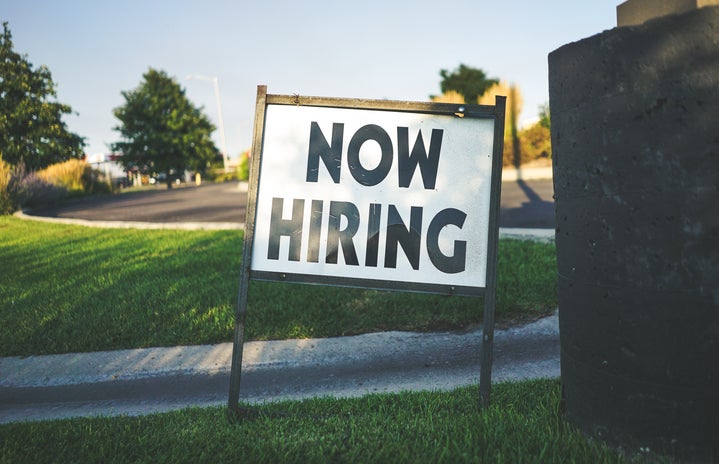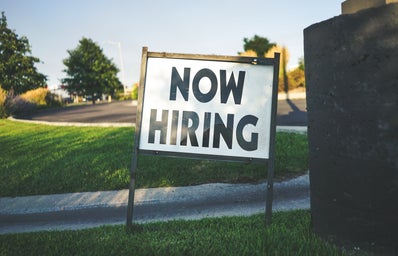Professionalism has always been a foreign concept to me. In high school, I really didn’t have many events I needed to display my “professionalism” in. When I got to college, I suddenly realized that everyone had blazers and pantsuits and a plethora of blouses. Coming from a working class background, I maybe had a pair of slacks, some worn out flats, and a polka dot blouse I got from Charlotte Russe during my preppy phase when I was 13 years old. When I went to professional events at my university, I always felt like I was an imposter— that I was somehow masquerading as someone else.
You see, I’ve come to notice that a lot of these dress codes that say they promote professionalism actually have deep roots within systems of oppression. If I reflect on professionalism long enough, I am convinced it was created to enable colonizers to hold power over people who have marginalized identities.
As a Latina, one of the first cases of policing professionalism that comes to mind is the swearing in of Supreme Court Justice Sonia Sotomayor. While being prepped for her confirmation hearing, she was advised to wear neutral colored nail polish to avoid rocking the boat too much— as if a Latina in red nail polish would suddenly push white male politicians over the edge, not the fact that she is proudly Latina. Just the nail polish. Sotomayor kept her fire engine red polish.
For Black men and women, policing comes in various forms. However, one of the most common seems to be work requirements for “professional hair.” Or, should I say, hair that is most widely accepted by upper-class white people.
In the 2010 case, Chastity Jones readily accepted a job offer from Catastrophe Management Solutions as a customer service representative. The offer, however, came with one requirement: she must cut off her locs. Jones refused, and the company rescinded its job offer. The hiring manager from Catastrophe allegedly told Jones, “They tend to get messy.” The Equal Employment Opportunity Commission (EEOC) filed a suit for Jones in 2013 and lost. In 2016, the 11th Circuit Court of Appeals upheld the district court’s ruling and dismissed the case altogether. Jones’ case is nothing new— cases regarding work places and natural African hair policing have been going on for more than 40 years. Mainstream notions of professionalism can also hurt LGBTIQ folks as well. Often times, business professional attire equates to reinforcement of a restrictive gender binary that doesn’t fit your experiences. Some queer folks may have a harder time finding the balance between what feels right and what is expected when conjuring up notions of “professionalism.” As far as the attire aspect goes, one could argue that “professionalism” adheres to strict gender binaries. Women could possibly wear a skirt or slacks, whereas men must wear slacks. There is no guidebook for people who identify with neither or both, though we could question: Do we even need a guidebook to begin with? Does anybody else see how repressive these mainstream ultimatums are regarding professionalism?
Besides the attire aspect of professionalism, there is also this mainstream notion on how one must talk. For people of color, speaking at work and speaking at home or with friends are two entirely different worlds. For all of you who are not engaged with Black critical-race theory, this is called code switching.
For African-American professionals, they may engage in African American Vernacular English (AAVE) at home— but code switch to white English in their professional lives. AAVE does not have a vocabulary separate from other varieties of English. However, AAVE speakers do use some words which are not found in other varieties, and they may use some English words in ways that differ from the standard. Think about all the words that Ariana Grande/Katy Perry/any other white pop star uses that seem very foreign to their tongues. Words/usage of grammar like “sis,” “chile,” “periodt,” and “we BEEN knew.” These are all markers for AAVE— which means white girls on twitter have been colonizing AAVE recently.
It’s just very annoying/racist/on script for the colonizers to steal parts of a vernacular that they like, but simultaneously punish Black people who have invented and speak AAVE. In fact this vernacular is not accepted in corporate workplaces— but white people will get 200K retweets when they use it on social media.
For international workers, language can be another barrier to employment and “professionalism.” Recent research has explained how non-native speakers—ones that do not sound white or American—face hurdles when it comes to the promotional process. Often times, they are denied promotions or jobs in favor of their white and/or American peers.
“Biased” professionalism (or, better yet, racist professionalism) also is proven to affect people of color from getting promotional opportunities. For instance, Asian Americans are one of the least likely groups to get promoted to management positions despite being the most highly educated demographic— perhaps as a result of racist stereotypes suggesting Asian Americans are quiet and antisocial.
Biased professionalism can also be seen in the workforce in the form of “cultural fit.” Cultural fit is a term used when interviewers or bosses say, “they want someone to go to lunch with.” Cultural fit includes an applicant’s values, behaviors, customs and outward appearance. Cultural fit is also one of the main major hiring trajectories that favors white cis people over marginalized populations.
In the United States, while there are federal laws in place to protect marginalized populations from discrimination, sometimes these laws fall short. Consider the ways that people of color are more closely monitored in the workplace than their white peers. There has been a proven correlation between higher levels of monitoring and termination. While on the surface these practices may seem to attempt to celebrate diversity (yay they hired exactly ONE person of color!), this management style often assumes people of color cannot be trusted to complete tasks.
I often ask myself: who benefits the most from these strict definitions of professionalism? It surely is not people of color, LGBTIQ, or any other population that has a marginalized identity. Often times, it is those of us with limited power that must align ourselves with dominant conceptualizations of “professionalism in the workplace” in order to have spaces in predominantly white firms or practices. This train of thought lead me to believe that professionalism is rooted in whiteness— or at least adheres to rules to abide by it. Sometimes, it feels as though these harsh narratives are the dominant class’ way to gain and maintain power over marginalized groups. You must look a certain way, not have this, not have that, say this, do that— but nobody really talks about how this impacts our ability to be our authentic selves as human beings rooted in cultures and identities. What do workplaces lose when they police people of color in the professional workforce? Personally, I think they lose everything— and then some.



